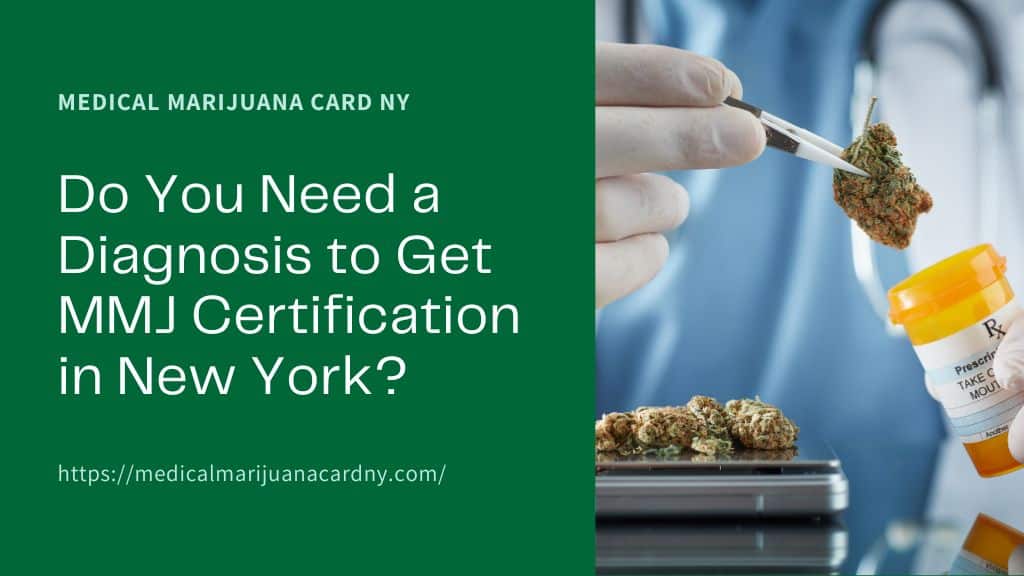Rheumatoid Arthritis (RA), a chronic inflammatory disorder, not only affects joints but also disrupts the lives of millions. In the quest for relief, an ancient remedy is making a modern comeback: Medical Marijuana. In this comprehensive blog, we delve into the potential of Medical Marijuana as a promising alternative for those battling the daily challenges of RA.
Why consider Medical Marijuana for RA? It’s a question that resonates deeply in New York, a state at the forefront of medical cannabis advocacy. Here, we explore how this natural treatment works, its legalities, and the experiences of those who’ve turned to it for solace. This blog serves as a beacon of information, breaking down scientific insights and patient perspectives, guiding you through the often-misunderstood world of medical cannabis.
We invite you to join us on this enlightening journey. Whether you’re a long-time RA sufferer, a caregiver, or simply curious about the therapeutic possibilities of Medical Marijuana, this blog promises to provide valuable insights. Stay tuned as we uncover the role of Medical Marijuana in managing Rheumatoid Arthritis symptoms, navigating through New York’s legal landscape, and empowering you to make informed health decisions. Let’s embark on this path of discovery together.
Table of Contents
Toggle- What Is Rheumatoid Arthritis?
- Who Is Most Affected by Rheumatoid Arthritis in New York?
- What Are the Common Treatments for Rheumatoid Arthritis?
- Why Is Pain Management Important in Rheumatoid Arthritis?
- How Does Medical Marijuana Work in the Body?
- How Can Medical Marijuana Help With Rheumatoid Arthritis Symptoms?
- What Research Supports the Use of Medical Marijuana for Rheumatoid Arthritis?
- What Is the Legal Status of Medical Marijuana in New York?
- How Can Patients Access Medical Marijuana in New York?
- Who Has Benefited from Medical Marijuana for Rheumatoid Arthritis in New York?
- Why Do Some Patients Choose Medical Marijuana Over Traditional Treatments?
- What Are the Challenges of Using Medical Marijuana for Rheumatoid Arthritis?
- How to Choose the Right Strain and Dosage for Rheumatoid Arthritis?
- How Do Doctors in New York Approach Medical Marijuana for Rheumatoid Arthritis?
- Can Rheumatologists Prescribe Medical Marijuana in New York?
- Conclusion
What Is Rheumatoid Arthritis?
Rheumatoid Arthritis (RA) is a chronic inflammatory disorder primarily affecting the joints, but it can also impact other parts of the body. This autoimmune disease occurs when the immune system mistakenly attacks the body’s own tissues, leading to inflammation, swelling, and pain in and around the joints. Commonly affected areas include the hands, wrists, and knees. Unlike the wear-and-tear damage of osteoarthritis, RA affects the lining of the joints, causing painful swelling that can eventually result in bone erosion and joint deformity.
The exact cause of RA is not fully understood, but it involves a complex interplay of genetic, environmental, hormonal, and lifestyle factors. Key risk factors include genetics (those with a family history of RA are at increased risk), environmental triggers (such as exposure to pollution or smoke), hormonal changes (women are more commonly affected, possibly due to estrogen fluctuations), and lifestyle choices (smoking significantly increases the risk).
Symptoms of RA typically include joint pain and stiffness, swelling, redness, and warmth. The condition usually affects multiple joints in a symmetrical pattern (both sides of the body). Morning stiffness lasting longer than 30 minutes is a hallmark symptom. Other systemic symptoms may include fatigue, low-grade fever, weight loss, and depression.
RA is diagnosed based on clinical symptoms, family and personal medical history, blood tests for rheumatoid factor and anti-CCP antibodies, and imaging tests to assess joint damage. There are two main types of RA: seropositive (where blood tests show the presence of anti-CCP and rheumatoid factor) and seronegative (where these antibodies are not present).
Who Is Most Affected by Rheumatoid Arthritis in New York?
Rheumatoid Arthritis affects a significant portion of the population in New York, as it does throughout the United States. Women are up to three times more likely to develop RA than men and typically develop the disease at a younger age. The onset of RA generally occurs between the ages of 30 and 60, with the average person developing symptoms in their 60s.
While specific statistics for New York are not readily available, the trends observed nationwide can provide insight. Across the United States, RA has substantial economic impacts, with national costs reaching $304 billion in 2013, including medical expenses and lost wages.
In terms of demographics, the prevalence of RA varies, but certain groups are more vulnerable. Individuals with a family history of RA, women, smokers, and those exposed to certain environmental factors are at an elevated risk. In New York, these factors are compounded by the state’s diverse population and varying environmental conditions.
Moreover, RA does not only affect adults; juvenile RA is a concern as well, with an estimated 300,000 children in the U.S. suffering from this condition. This highlights the importance of awareness and proper management strategies across all age groups in New York.
What Are the Common Treatments for Rheumatoid Arthritis?
Rheumatoid Arthritis (RA), a chronic autoimmune disorder, requires a multifaceted treatment approach to manage its symptoms and slow its progression. The treatment plan typically includes medication, lifestyle modifications, and sometimes surgery.
Medications
- Nonsteroidal Anti-Inflammatory Drugs (NSAIDs): These over-the-counter medications, like ibuprofen and naproxen sodium, relieve pain and reduce inflammation.
- Steroids: Corticosteroid medications, such as prednisone, reduce inflammation and pain while slowing joint damage. However, they have side effects and are usually used short-term.
- Disease-Modifying Antirheumatic Drugs (DMARDs): DMARDs, like methotrexate, leflunomide, and hydroxychloroquine, slow the progression of RA and save the joints and other tissues from permanent damage.
- Biologic Agents: These newer generation DMARDs, including etanercept and infliximab, target specific parts of the immune system that trigger inflammation causing joint and tissue damage.
Lifestyle and Home Remedies
Regular exercise, maintaining a healthy weight, and using assistive devices can help manage RA symptoms. Physical and occupational therapy can teach you how to protect your joints.
Surgical Options
In severe cases, surgery might be necessary to repair damaged joints. Procedures can include synovectomy, tendon repair, joint fusion, or total joint replacement.
Why Is Pain Management Important in Rheumatoid Arthritis?
Pain management in RA is crucial as it greatly affects the quality of life. Chronic pain can lead to decreased mobility, affecting daily activities and mental health. Effective pain management helps in:
- Improving Functionality: Reducing pain improves joint function, making daily tasks easier.
- Enhancing Quality of Life: Effective pain management helps individuals maintain a positive outlook, which is vital in managing a chronic condition.
- Preventing Long-term Complications: Chronic inflammation can lead to joint damage; managing pain often means controlling inflammation, which helps prevent or minimize these complications.
How Does Medical Marijuana Work in the Body?
Medical marijuana contains compounds like THC (tetrahydrocannabinol) and CBD (cannabidiol) which interact with the body’s endocannabinoid system (ECS). The ECS plays a key role in regulating a range of functions and processes, including pain, immune system responses, and inflammation.
- Interaction with ECS: THC binds with cannabinoid receptors in the brain and immune system, producing pain-relieving and anti-inflammatory effects.
- Reduction of Inflammation: CBD, known for its anti-inflammatory properties, does not bind directly to cannabinoid receptors but influences the ECS indirectly.
- Pain Relief: Medical marijuana can alter pain perception pathways in the brain, providing relief from chronic pain.
- Other Effects: It also helps in managing other symptoms like sleep disturbance and anxiety, which can accompany chronic conditions like RA.
It’s essential to consult healthcare professionals before starting any treatment for RA, including medical marijuana, due to its complex legal and health implications..
How Can Medical Marijuana Help With Rheumatoid Arthritis Symptoms?
Medical marijuana has shown potential in alleviating symptoms of Rheumatoid Arthritis (RA), a chronic autoimmune condition. The active compounds in cannabis, primarily tetrahydrocannabinol (THC) and cannabidiol (CBD), interact with the body’s endocannabinoid system, which plays a key role in regulating pain and inflammation, two primary symptoms of RA.
- Pain Relief: Medical marijuana can modify pain perception pathways in the brain, offering relief from chronic pain associated with RA.
- Anti-inflammatory Effects: The anti-inflammatory properties of cannabinoids can help reduce joint swelling and inflammation.
- Improved Sleep: Many RA patients struggle with sleep due to pain. Medical marijuana can help improve sleep quality.
- Mood Enhancement: RA can affect mental health. Cannabis has mood-enhancing effects that can help manage the emotional stress associated with chronic illnesses.
What Research Supports the Use of Medical Marijuana for Rheumatoid Arthritis?
Research on the effectiveness of medical marijuana in treating RA symptoms is growing, although it is still in the early stages. A review in the “Journal of Neuroimmunology” suggests that cannabinoids could be beneficial for treating inflammatory diseases like RA. Another study, published in “Rheumatology,” found that a cannabis-based medicine called Sativex showed promise in treating RA pain. However, more extensive and rigorous clinical trials are needed to establish definitive conclusions about the efficacy and safety of medical marijuana for RA.
What Is the Legal Status of Medical Marijuana in New York?
As of 2023, medical marijuana is legal in New York. Under the state’s Medical Cannabis Program, patients with a medical cannabis certification from a registered healthcare provider can purchase cannabis products from licensed dispensaries. The program does not require a traditional medical marijuana card; instead, certifications contain a registry ID number for purchasing products.
Patients eligible for medical cannabis are determined by healthcare providers who have completed a state-approved educational course. Providers include physicians, nurse practitioners, and others licensed to prescribe controlled substances. The New York State Department of Health maintains a list of consenting medical cannabis program practitioners.
Patients and designated caregivers can grow medical marijuana at home following specific regulations. The state allows the cultivation of up to six plants (three mature and three immature) per patient, with certain restrictions on visibility and access.
How Can Patients Access Medical Marijuana in New York?
Accessing medical marijuana in New York has been streamlined since March 2023. Patients seeking medical cannabis must first be certified by a registered healthcare provider. This certification, which includes a registry ID number, is used alongside a government-issued photo ID to purchase cannabis products at licensed dispensaries. There is no longer a requirement for a traditional medical marijuana card.
Steps to Access Medical Marijuana in New York:
- Consultation with a Healthcare Provider: Patients must see a registered healthcare provider licensed to prescribe controlled substances. This includes physicians, nurse practitioners, and other eligible practitioners.
- Obtaining Certification: If deemed appropriate for medical cannabis, the healthcare provider will issue a certification. This certification acts as the patient’s access to medical marijuana.
- Purchasing at Dispensaries: Patients can then use this certification at any licensed New York State medical dispensary.
Who Has Benefited from Medical Marijuana for Rheumatoid Arthritis in New York?
Many residents in New York have found relief from the symptoms of Rheumatoid Arthritis through medical marijuana. These include patients like Jon Dorn, who have experienced significant reductions in pain, inflammation, and improved quality of sleep. Each medical cannabis dispensary in New York is required to have a pharmacist on-site to assist patients in selecting the right product, ensuring that patients like Jon receive appropriate and effective treatment.
Why Do Some Patients Choose Medical Marijuana Over Traditional Treatments?
Patients often turn to medical marijuana over traditional treatments for several reasons:
- Reduced Side Effects: Unlike some conventional medications, medical marijuana may have fewer or more tolerable side effects.
- Effectiveness in Symptom Management: Some patients find medical marijuana more effective in managing symptoms like chronic pain and inflammation.
- Holistic Approach: Medical marijuana offers a more holistic approach, sometimes addressing multiple symptoms simultaneously, such as pain, sleep disturbances, and mood.
What Are the Challenges of Using Medical Marijuana for Rheumatoid Arthritis?
Despite its benefits, using medical marijuana for Rheumatoid Arthritis comes with challenges:
- Lack of Standardized Dosing: Finding the right dosage can be trial and error, as standardized dosing guidelines are not well-established.
- Legal and Social Stigma: Despite legalization in New York, there can be a social stigma attached to using medical marijuana.
- Insurance Coverage: Medical marijuana is often not covered by insurance, making it a potentially costly treatment option.
- Variability in Strains and Products: The wide variety of strains and products can make it difficult for patients to find the most effective option for their specific symptoms.
How to Choose the Right Strain and Dosage for Rheumatoid Arthritis?
When selecting a medical marijuana strain for Rheumatoid Arthritis (RA), consider the following factors:
- Type of Strain (Indica, Sativa, Hybrid): Indicas are known for body relaxation and pain relief, often preferred for RA due to their higher CBD concentration. Sativas provide more of a cerebral, energizing effect. Hybrids can offer a balance between the two.
- CBD and THC Levels: Strains with higher CBD levels are beneficial for arthritis support as CBD may reduce pain and inflammation. However, some THC might also be necessary for full therapeutic effects. Balanced strains with equal THC:CBD ratios, such as Canna-Tsu, Royal Highness, and Pennywise, can be effective.
- Terpene Profile: Terpenes like myrcene, caryophyllene, and pinene have anti-inflammatory properties. Understanding a strain’s terpene profile can help tailor the choice to your specific needs.
- Patient Reviews: Personal experiences from other RA patients can provide valuable insights into the effectiveness of certain strains.
- Consultation with Professionals: Speak with a knowledgeable healthcare provider or dispensary staff to get recommendations based on your symptoms and medical history.
How Do Doctors in New York Approach Medical Marijuana for Rheumatoid Arthritis?
In New York, doctors approach medical marijuana for RA on a case-by-case basis. They consider a patient’s medical history, symptoms, and previous treatment responses. Doctors use a combination of physical examinations, lab tests, and imaging to confirm a diagnosis of RA before considering medical marijuana. They may recommend medical marijuana as part of a comprehensive treatment plan, which may also include medications, physical therapy, and lifestyle changes.
Can Rheumatologists Prescribe Medical Marijuana in New York?
Yes, rheumatologists in New York can prescribe medical marijuana for RA. Healthcare providers, including rheumatologists, who are registered with the state, have completed a required educational course, and are licensed to prescribe controlled substances can certify patients for medical cannabis use. This certification process allows patients to obtain medical cannabis legally in the state.
Conclusion
In conclusion, medical marijuana emerges as a promising alternative for those grappling with Rheumatoid Arthritis (RA) in New York. With the state’s evolving cannabis laws, patients now have easier access to this natural therapy. Medical marijuana, recognized for its pain-relieving and anti-inflammatory properties, offers a beacon of hope for RA sufferers, particularly those who haven’t found relief through traditional treatments.
The choice of strain and dosage, however, is crucial and should be made in consultation with a healthcare professional who can tailor recommendations to individual needs. New York’s medical practitioners, including rheumatologists, are increasingly acknowledging the potential benefits of medical marijuana, providing certifications that enable patients to legally obtain and use cannabis for therapeutic purposes. This shift not only reflects a broader acceptance of medical marijuana’s role in managing chronic conditions like RA but also underscores New York’s commitment to offering diverse, patient-centered healthcare options.
Resources
https://www.webmd.com/rheumatoid-arthritis/ra-marijuana-cbd-oil
https://pubmed.ncbi.nlm.nih.gov/37917863/
https://www.ncbi.nlm.nih.gov/pmc/articles/PMC7000161/
https://www.medicalnewstoday.com/articles/medical-marijuana-for-rheumatoid-arthritis





